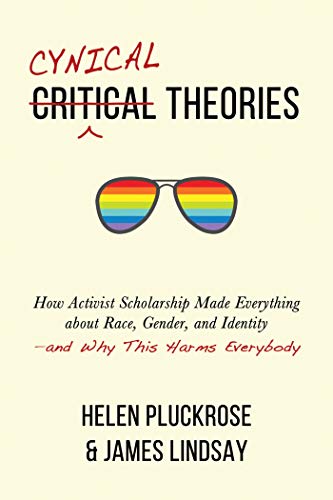A Brief Book Summary from Books At a Glance
By Benjamin J. Montoya
About the Authors:
Helen Pluckrose is a liberal political and cultural writer and speaker. She is the editor of Areo Magazine and the author of many popular essays on postmodernism, critical theory, liberalism, secularism, and feminism. A participant in the Grievance Studies Affair probe, which highlighted problems in social justice scholarship, she is today an exile from the humanities, where she researched late medieval and early modern religious writing by and for women. She lives in England.
James Lindsay is a mathematician with a background in physics. He is interested in the psychology of religion, authoritarianism, and extremism and is the author of Everybody is Wrong about God. His other books include Life in Light of Death and How to Have Impossible Conversations. His essays have appeared in the Wall Street Journal, Los Angeles Times, Philosophers’ Magazine, Scientific American, and Time. He led the Grievance Studies Affair probe that made international headlines in 2018, including the front page of the New York Times. He lives in Tennessee.
Introduction
Our world has changed in so many ways, and the US certainly has too. The US was founded on certain principles that have been historically considered to be liberal, to allow for more freedoms than had ever been known before. Now what is happening is that due to the acceptance of postmodernism and the twisting of terms, there is a movement in the US that seeks to undo the US in the name of “Social Justice.” It is not true social justice at all. Consider this accessible and important book to learn more!
Table of Contents
Chapter 1 Postmodernism: A Revolution in Knowledge and Power
Chapter 2 Postmodernism’s Applied Turn: Making Oppression Real
Chapter 3 Postcolonial Theory: Deconstructing the West to Save the Other
Chapter 4 Queer Theory: Freedom from the Normal
Chapter 5 Critical Race Theory and Intersectionality: Ending Racism by Seeing It Everywhere
Chapter 6 Feminisms and Gender Studies: Simplification as Sophistication
Chapter 7 Disability and Fat Studies: Support-Group Identity Theory
Chapter 8 Social Justice Scholarship and Thought: The Truth according to Social Justice
Chapter 9 Social Justice in Action: Theory Always Looks Good on Paper
Chapter 10 An Alternative to the Ideology of Social Justice: Liberalism without Identity Politics
Summary
Chapter 1: Postmodernism: A Revolution in Knowledge and Power
Postmodernism is an intellectual change/movement that began to take place somewhere between the 1950s and the 1970s. Because this movement denies so much, it is often difficult to define. Some have defined it as an “incredulity towards metanarratives” to explain reality. This system likes to claim that such grand metanarratives from religion and anywhere else cannot exist like they do because postmodernism seeks to deconstruct everything based on its view that there is no knowable truth.
Four things characterize postmodernism:
- The blurring of boundaries
- The power of language
- Cultural relativism
- The loss of the individual and the universal
It can become even difficult to understand what postmodernism is because of its view of language as not having inherent meaning. This leads to the “postmodern knowledge principle: radical skepticism about whether objective knowledge or truth is obtainable and a commitment to cultural constructivism.” Postmodernism has influenced politics as a result of this knowledge principle in what can be called “the postmodern political principle: A belief that society is formed of systems of power and hierarchies, which decide what can be known and how.” In the next chapter, we will consider how applying this system affects society.
Chapter 2: Postmodernism’s Applied Turn: Making Oppression Real
Some argued in the early 1990s that postmodernism was dead as an intellectual movement. Is that so? Nothing could be further from the truth. What happened is that postmodernists began to apply their thought framework, really its own metanarrative, to twist words, categories, and make oppression real to fuel their political purposes.
[To continue reading this summary, please see below....]The remainder of this article is premium content. Become a member to continue reading.
Already have an account? Sign In
